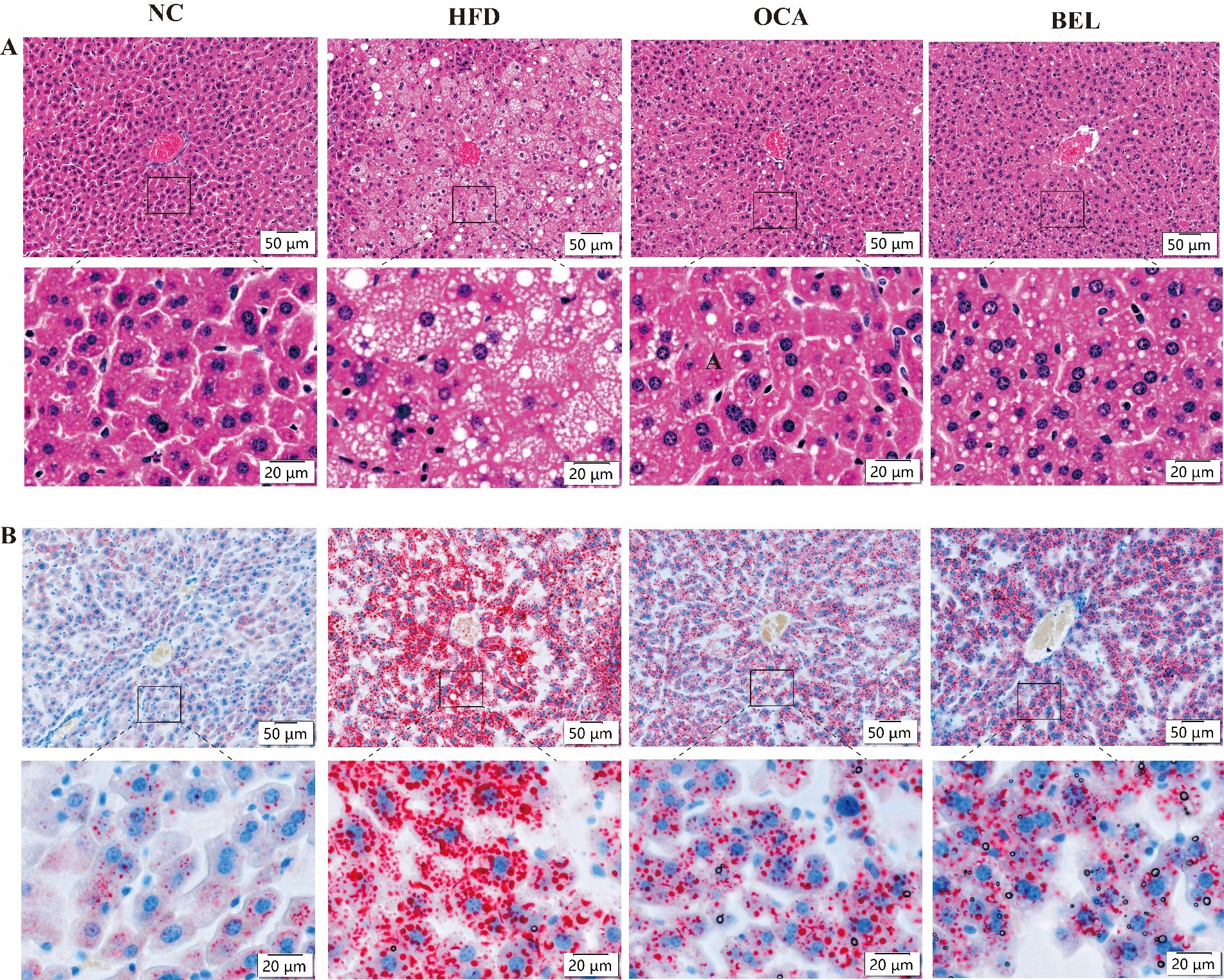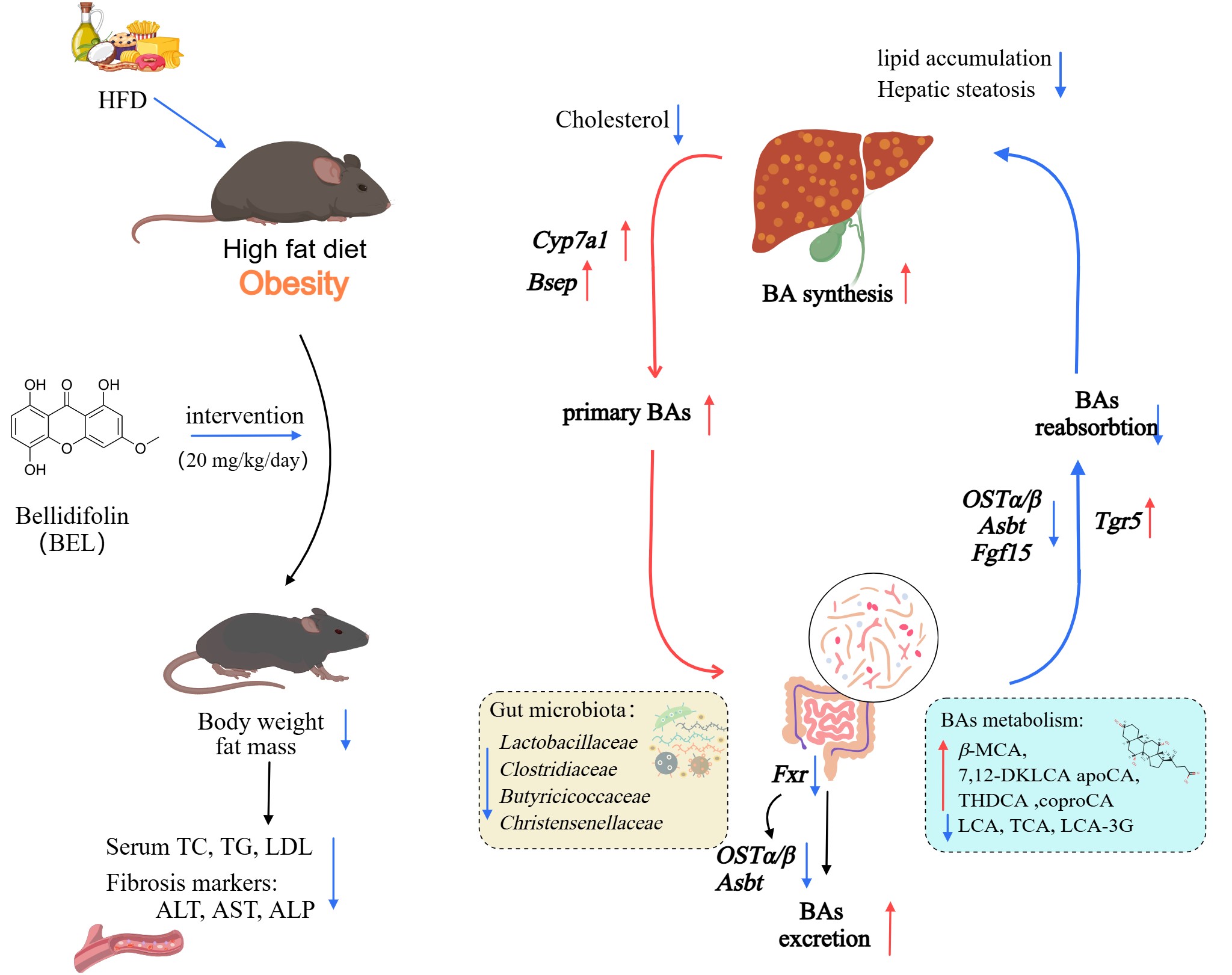Bellidifolin from Swertia diluta Improves High-Fat Diet-Induced Obesity via Gut Microbiota and Bile Acid Regulation
Obesity and related metabolic disorders, including hyperlipidemia and non-alcoholic fatty liver disease, have become significant global public health challenges. According to the World Health Organization, the worldwide obesity rate has nearly tripled since 1975, affecting approximately 650 million adults. High-fat diet (HFD) is a key driver of lipid metabolism disorders; however, current interventions show limited efficacy, prompting the urgent need to develop novel natural therapies.
Swertia diluta, predominantly grown in Yan’an, Shaanxi Province, China, has traditionally served as a herbal medicine and food ingredient to alleviate hepatobiliary diseases and hyperlipidemia. A research team from the Strategic Plant Resources Conservation and Utilization Group at the South China Botanical Garden, Chinese Academy of Sciences, has recently discovered that Bellidifolin (BEL), a major active compound in S. diluta, markedly improves HFD-induced obesity and related metabolic abnormalities by modulating intestinal microbiota and bile acid metabolism.
Using high-performance liquid chromatography–mass spectrometry (HPLC-MS/MS), the team identified 25 xanthone derivatives in S. diluta extracts. Network pharmacology analysis revealed strong associations between these compounds and pathways involved in lipid metabolism and atherosclerosis. Among them, BEL significantly decreased serum triglycerides (TG), total cholesterol (TC), and low-density lipoprotein cholesterol (LDL-C), thereby alleviating hepatic steatosis and inflammatory injury.
BEL also reshaped the gut microbial community by reducing the abundance of pro-inflammatory bacteria such as Firmicutes and Lactobacillaceae, while increasing beneficial microbes like Bacteroidota, thus improving the intestinal microenvironment. Mechanistically, BEL upregulated hepatic CYP7A1 to enhance bile acid synthesis and inhibited intestinal bile acid reabsorption via downregulation of ASBT and OSTα/β transporters. This dual effect promoted fecal bile acid excretion and reduced lipid accumulation in the liver.
The research article titled “Bellidifolin, a constituent from edible Mongolic Liver Tea (Swertia diluta), promotes lipid metabolism by regulating intestinal microbiota and bile acid metabolism in mice during high fat diet-induced obesity” was recently published in the international journal Food Bioscience. Postdoctoral student Aikebaier Jumai is the first author, and researcher QIU Shengxiang is the corresponding author. Core team members include assistant researcher LI Bailin and associate researcher ZHAO Liyun. Paper link: https://doi.org/10.1016/j.fbio.2025.106562

Fig. 1. BEL’s effects on lipid metabolism and liver injury improvement.(Imaged by LI et al)

Fig. 2. Proposed mechanisms of BEL in promoting lipid metabolism and weight reduction.(Imaged by LI et al)
File Download: